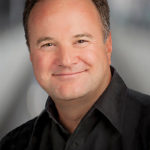As a nation, we came together for a few brief hours. We set aside our political, cultural, economic, and demographic differences, and although we were sharply divided over who we wanted to win, we applauded the process wholeheartedly. Together we laughed, we cried, we cheered, and we feared.
Of course, I am talking about the most recent Super Bowl. Not the game, but the commercials.
The Super Bowl’s commercials are anticipated as much as the game itself. The super-expensive, highly condensed stories are designed to evoke a strong emotional reaction, which is supposed to make viewers feel favorably about the brand being advertised, and ultimately, purchase those products.
But does a television commercial that makes people laugh or cry actually help a company sell more products? Let’s dive in and find out.
Emotional advertising aims to influence behaviors and evoke responses. According to a 2009 study titled “Emotions, Attitudes and Memorability Associated with TV Commercials,” as consumers are exposed to these messages their feelings about products or brands shift.
“Advertisers try to create positive attitudes by evoking a favorable or positive emotional state in the consumer,” according to the study’s authors. The researchers concluded consumers prefer advertisements that elicit a positive feeling such as love, joy, or nostalgia. They also found advertisements that evoke emotions are more likely to be recalled.
In an article in Fast Company titled “The Rise Of Sadvertising: Why Brands Are Determined To Make You Cry,” the author wrote marketers believe consumer decision-making is driven by the unconscious instead of logic, because “most of the business of life happens through our emotions,” and “a good cry” has become “an engine of social sharing.”
Ultimately, any advertisement will be judged on whether it motivates consumers to purchase the product being advertised. So why is appealing to the heart and not the head in advertising so effective?
It is interesting to note the word “motivation” and “emotion” share the same Latin root, movere, which means to move. By soliciting an emotional response, consumers are unconsciously moved toward taking action.
In other words, feeling, not thinking, is key to advertising success.
Advertising executive and author Douglas Van Praet believed we don’t think our way to logical solutions; we feel our way to reason. “Emotions, not words, are the universal language of humans,” he wrote
Van Praet had a hand in creating the “Darth Vader” commercial for Volkswagen, which elicited such a strong emotional response that it became among the most shared Super Bowl ads ever, amassing a staggering 56 million views on YouTube and earning a reported 6.8 billion impressions worldwide and more than $100 million in earned media.
Not coincidently, it helped VW achieve its best market share in thirty years.
In an article in Psychology Today, author Peter Noel Murray, Ph.D., wrote, “Most people believe the choices they make result from a rational analysis of available alternatives. In reality, however, emotions greatly influence and, in many cases, even determine our decisions.”
Furthermore, research indicates consumers’ emotional response to an ad has a far greater influence on their intent to buy a product than does the ad content—by a factor of three to one for television commercials and two to one for print ads. This “emotional branding” helps differentiate companies from their competitors and creates deep intrinsic relationships between brands and consumers.
The concept was summarized best by a fictional character. In the television program Mad Men, advertising executive Don Draper talked about how a product can create a deep bond with consumers by using one of the most powerful emotions: nostalgia. “It’s delicate, but potent,” he said. “In Greek, nostalgia literally means ‘the pain from an old wound.’ It’s a twinge in your heart far more powerful than memory alone. It takes us to a place where we ache to go again; to a place where we know we are loved.”
And love, after all, is the most powerful emotion of all.
 Randall Huft is president and creative director at Innovation Agency, an advertising, branding, and public relations firm specializing in the cannabis industry. While working with blue-chip companies including AT&T, United Airlines, IBM, Walgreens, American Express, Toyota, and Disney, he discovered what works, what doesn’t, and how to gain market share.
Randall Huft is president and creative director at Innovation Agency, an advertising, branding, and public relations firm specializing in the cannabis industry. While working with blue-chip companies including AT&T, United Airlines, IBM, Walgreens, American Express, Toyota, and Disney, he discovered what works, what doesn’t, and how to gain market share.


